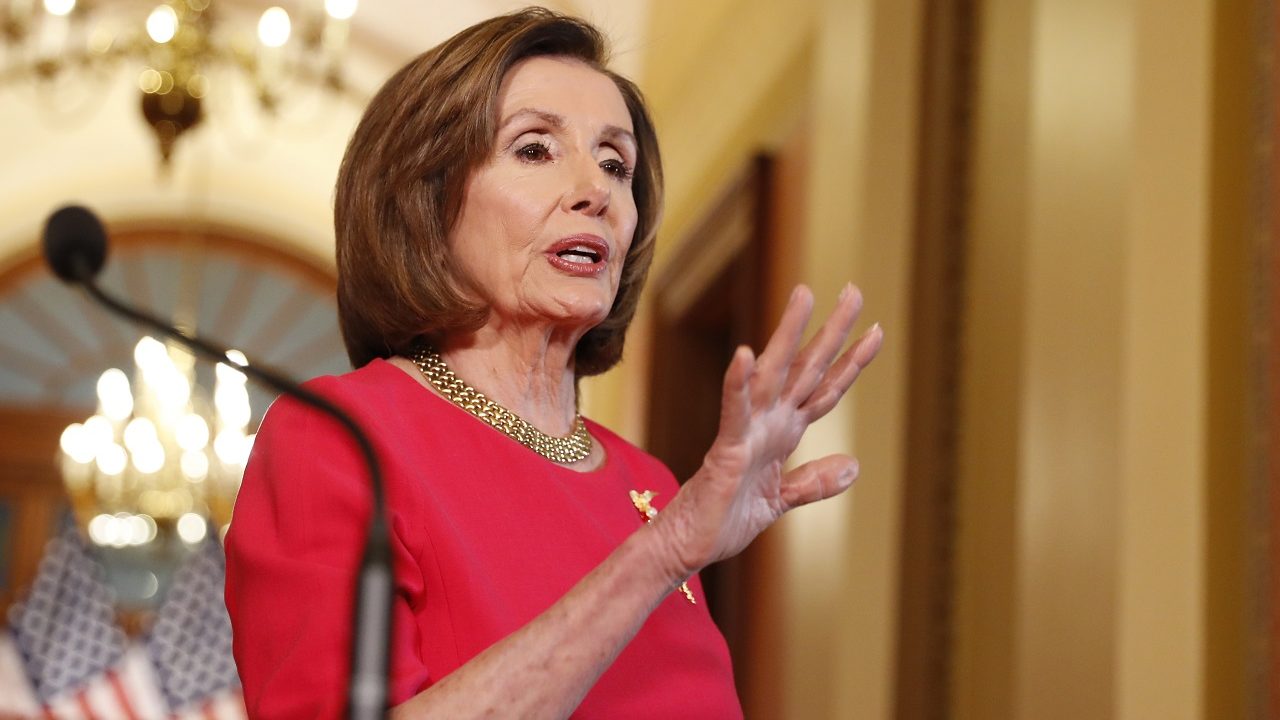Pelosi pushes ahead on massive virus bill, but GOP wary
Pelosi promises that the Democratic-controlled House will deliver legislation to help state and local governments
Get all the latest news on coronavirus and more delivered daily to your inbox. Sign up here.
Even in absentia, House Democrats are seeking to drive the debate on the fifth coronavirus response bill, promising to produce a mega-package stuffed with Democratic priorities even as a chorus of GOP leaders voices hesitation about more spending.
Pelosi promises that the Democratic-controlled House will deliver legislation to help state and local governments through the COVID-19 crisis, along with additional money for direct payments to individuals, unemployment insurance and a third installment of aid to small businesses. The amount of funding is to be determined.
GET FOX BUSINESS ON THE GO BY CLICKING HERE
The California Democrat is leading the way as Democrats fashion a sweeping package that is expected to be unveiled soon even as the House stays closed while the Senate is open in the pandemic.
The contours of the next package are taking shape despite Republican resistance to more spending and a deepening debate over how best to confront the pandemic and its economic devastation. Some Republicans such as Sen. Mitt Romney of Utah and a group of GOP governors want to be more generous to states confronting furloughs and cuts to services as revenues plummet and unemployment insurance and other costs spike.
Senate Majority Leader Mitch McConnell said Tuesday it's time to push “pause” on more aid legislation — even as he repeated a “red line” demand that any new aid package include liability protections for hospitals, health care providers and businesses operating and reopening.
McConnell and other Republicans, however, ducked the chance to endorse President Donald Trump's demand for a cut to Social Security payroll taxes as a salve for the economy. Many lawmakers think the payroll tax cut is a bad idea because it only boosts paychecks but doesn't help people thrown out of a job.
CONGRESSIONAL LEADERS SUPPORT DEDUCTIONS FOR PPP BORROWERS
“I’ve never thought that really would be very effective,” Sen. Susan Collins, R-Maine. She said she’s working with a bipartisan, bicameral group on a state and local aid package.
Trump is encouraging states to reopen and Republicans hope the gradual comeback will kick-start the economy, reducing the pressure for more pricey aid.
Trump took to Twitter on Tuesday with a repackaged set of demands.
“Well run States should not be bailing out poorly run States, using CoronaVirus as the excuse! The elimination of Sanctuary Cities, Payroll Taxes, and perhaps Capital Gains Taxes, must be put on the table," Trump tweeted.
Having reconvened this week, Senate Republicans are trying to set the terms of debate, frustrated by a negotiating dynamic on previous bills that empowered Democrats and sent costs spiraling. But they’re divided among themselves and reluctant to unleash federal funds beyond the nearly $3 trillion Congress has already approved for virus relief.
NYSE YET TO DETERMINE WHEN FLOOR WILL REOPEN, CORONAVIRUS SAFETY MEASURES COULD CONTINUE
“I just don’t think we need to act as quite urgently,” Sen. John Cornyn, R-Texas, told reporters at the Capitol. But Cornyn, who is up for reelection this year, and other rank-and-file Republicans promise there will be further coronavirus legislation.
“I think all of us are going to get our papers graded in November based on how we responded. This is going to be the dominant issue in every election in the country," Cornyn said.
CLICK HERE TO READ MORE ON FOX BUSINESS
A freshman Republican senator, Missouri's Josh Hawley, said: “If we enter a long-term recession or depression, the concerns we have about deficit spending now are going to look like a walk in the park."
One idea gaining traction among Republicans is to allow greater flexibility on $150 billion in aid that's already been delivered to states and larger cities. That money is supposed to be used to pay for COVID-19 response, but governors in some states won't be able to use it all for that purpose and want to use it to make up for revenues lost as the country slides into recession.




















